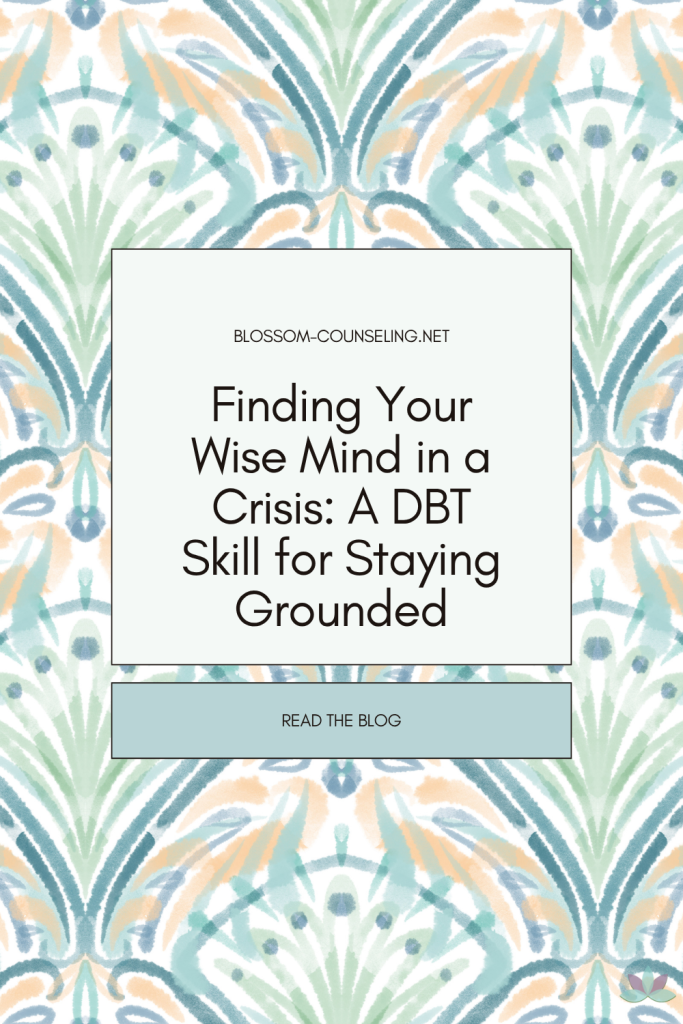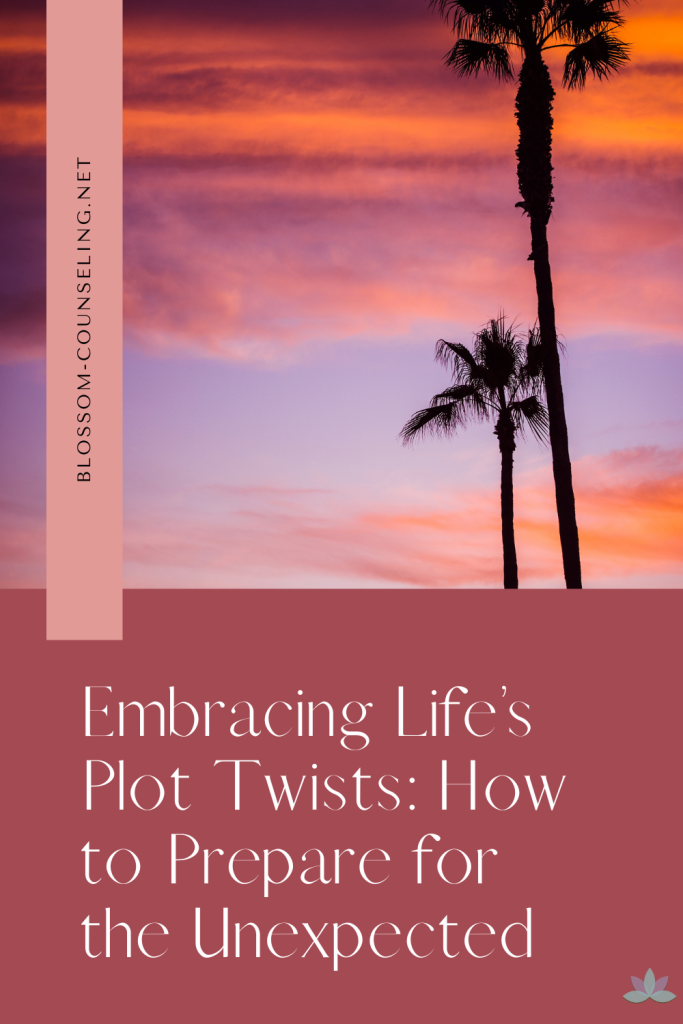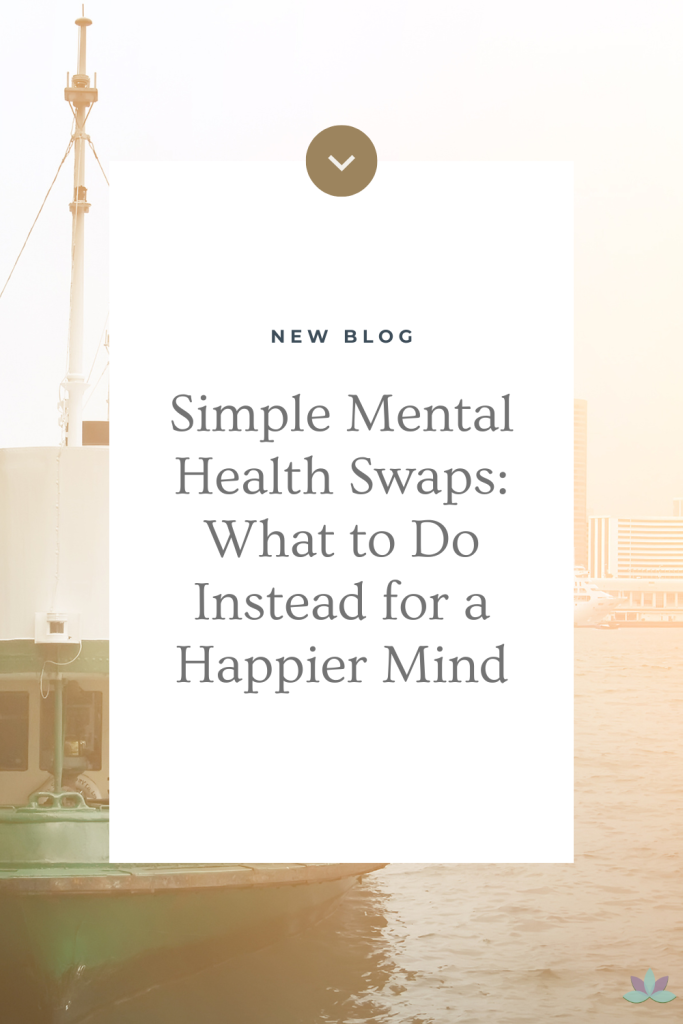
When life throws us into crisis mode, our emotions can feel like a tidal wave—overwhelming, chaotic, and all-consuming. In moments like these, making decisions can feel impossible. Do we react with pure emotion, letting anger or panic take the wheel? Or do we try to shut it all down, pushing our feelings away and acting as if nothing is happening?
Dialectical Behavior Therapy (DBT) offers a different approach: Wise Mind—a skill that helps us access a balanced, grounded state where logic and emotion work together, rather than against each other. Wise Mind is the calm in the storm, the middle path between extremes, and an incredibly valuable tool during times of crisis.
What Is Wise Mind?
In DBT, we talk about three states of mind:
- Emotion Mind – This is when emotions run the show. It’s reactive, intense, and often impulsive. Think of a time when anger led you to send a text you regretted or when anxiety made you avoid something important. Emotion Mind isn’t bad—it helps us connect with our feelings—but when it takes over, we might not make the best choices.
- Reasonable Mind – This is where logic and facts dominate. In Reasonable Mind, we might approach problems methodically, relying on data and rules, but we can also become detached, ignoring the emotional side of things. If you’ve ever told yourself to “just get over it” without acknowledging how you feel, you were likely in Reasonable Mind.
- Wise Mind – This is the sweet spot between the two. Wise Mind acknowledges emotions without being overwhelmed by them and uses logic without being disconnected. It’s the part of us that just knows what to do—not because of impulse or rigid thinking, but because it integrates both reason and emotion.
How to Access Wise Mind in a Crisis
When everything feels like it’s spiraling out of control, reaching Wise Mind may seem impossible. But the good news is, it’s always there—you just have to practice tapping into it. Here’s how:
1. Pause and Breathe
Crises often trigger immediate reactions, but the first step toward Wise Mind is to pause. Even a few deep breaths can create enough space between your emotions and your actions. Try paced breathing—inhale for four counts, hold for four, exhale for six. This helps your nervous system calm down, making it easier to think clearly.
2. Ask Yourself: “What Would Wise Mind Say?”
This might feel strange at first, but actually asking yourself this question can shift your perspective. Imagine a version of yourself that is calm and clear-headed—what would they do in this situation? This technique can help you step outside of the emotional intensity and see the bigger picture.
3. Name Your Emotions Without Judgment
Wise Mind doesn’t ignore emotions—it acknowledges them. Say to yourself, “I am feeling really anxious right now” or “I notice I’m really angry.” This small act of labeling can reduce the power emotions have over you, making it easier to respond rather than react.
4. Find the Middle Path
When in crisis, we often default to extreme thoughts: “This is a disaster,” “I can’t handle this,” or “Everything is ruined.” Wise Mind asks, What’s the middle-ground perspective? Instead of “Everything is ruined,” you might say, “This is really difficult, but I can take it one step at a time.” Finding balance in your thoughts can help guide balanced actions.
5. Engage in Mindfulness
A simple grounding technique can bring you into the present moment, where Wise Mind lives. Try 5-4-3-2-1 grounding:
- Name 5 things you see
- Name 4 things you can touch
- Name 3 things you hear
- Name 2 things you smell
- Name 1 thing you taste
Mindfulness doesn’t make problems disappear, but it helps you become aware of them without being consumed by them.
Why Wise Mind Matters
In times of crisis, it’s tempting to react in ways that bring short-term relief but cause long-term stress—lashing out, shutting down, avoiding. Wise Mind helps you respond instead of react. It gives you the space to think before making decisions, the ability to recognize your emotions without being controlled by them, and the clarity to move forward in a way that aligns with your values.
The more you practice accessing Wise Mind, the easier it becomes—even in the most stressful situations. So the next time you feel pulled into a storm of emotion or stuck in cold, rigid logic, take a deep breath, pause, and remember: Wise Mind is always within you—you just have to listen.
Our team of compassionate therapists is here to help you find the support you need. We believe in a holistic approach, treating your mind, body, and spirit. With a blend of traditional and alternative therapies, we tailor your experience to meet your unique needs. At Blossom, we create a non-judgmental space where you can be your authentic self. Our goal is to empower you, amplify your strengths, and help you create lasting change. Together, we’ll navigate life’s challenges and help you bloom, grow, blossom! You deserve to become the best version of you.




